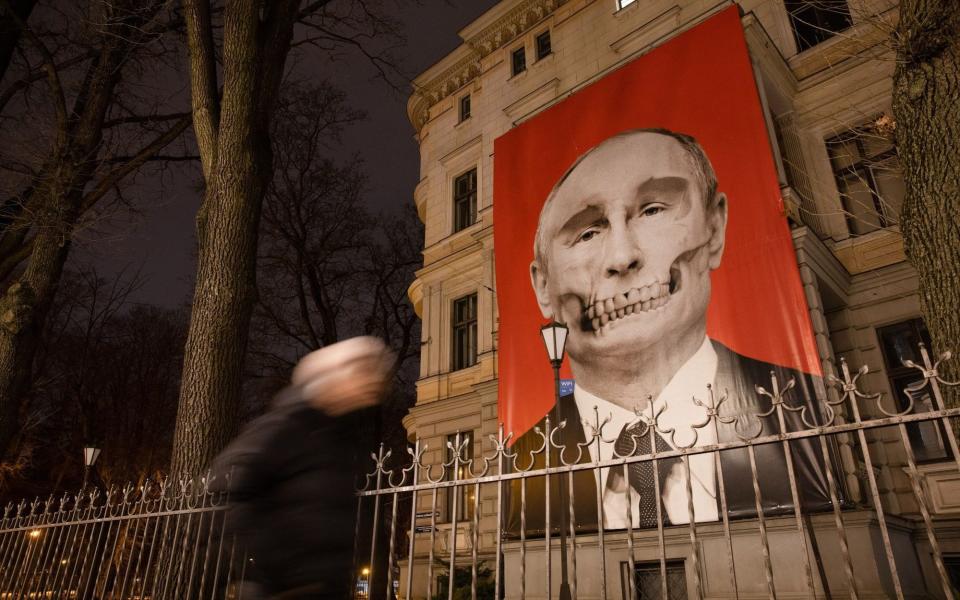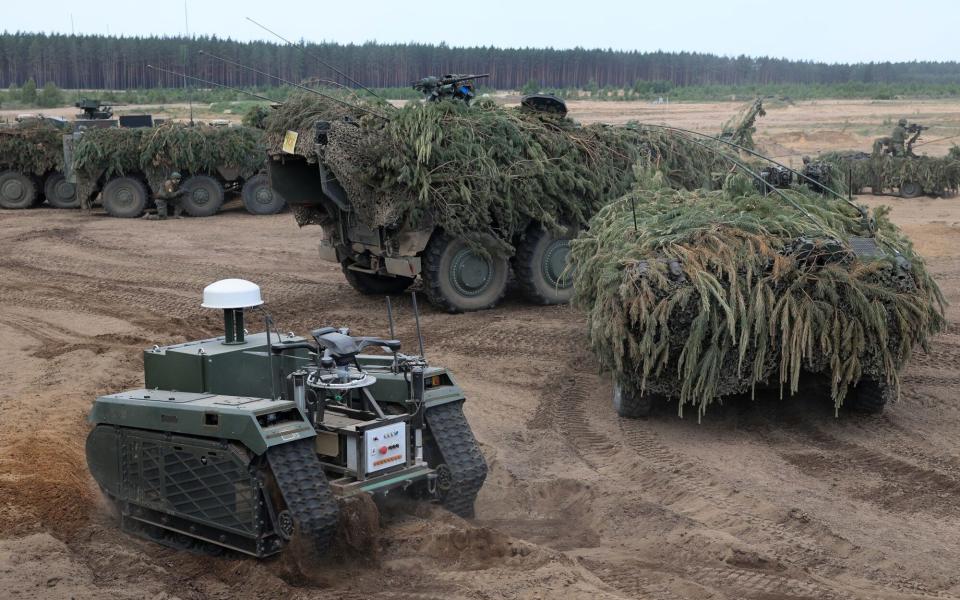Over the next seven days, The Telegraph will publish a series of exclusive essays from international commentators who imagine the consequences if Russia were to succeed in its war. The trials so far are listed at the end of this article.
Today, Dr. Ivana Stradner considers what Putin’s next European achievements would be after the takeover of Ukraine.
Russia recently celebrated Victory Day, an important national holiday commemorating the Soviet defeat of Nazi Germany. Speaking before Russian troops in parade formation on Red Square, Putin promised that Russia would soon achieve victory again – this time over Ukraine. Such an outcome would endanger not only Ukraine, but also security in Europe and beyond. Because your next achievements are already in your sights.
The Kremlin has been honest about its desire to weaken NATO, break Western unity and subjugate Russia’s neighbors. For Putin, the war in Ukraine is not just about that country. He sees the current conflict as a turning point in his broader struggle against the West and the reshaping of the world order.
Putin has said that Russia has no plans to attack any NATO country, and as such, many Western leaders rest in the belief that Russia’s war is strictly confined to Ukraine because NATO’s Article 5 is “watertight.” But if Moscow is allowed to prevail in Ukraine, other countries – including NATO members – will be at much greater risk. On the other hand, Western support for Ukraine demonstrates to Putin that he will pay an “even greater” price for an attack on NATO, and is preparing appropriately.
This fact does not go unnoticed in the countries closest to Russia. The Baltic nations first warned that Russia could “quickly pivot” from Ukraine to invade their territory. Moldova, too, which hopes to free itself from Russia’s influence and join the West, fears that it will be next if Putin emerges victorious in Ukraine.
Crucially, Russia does not need to send tanks and jets to these locations. A victorious and emboldened Russia, excited about Ukraine and with spare capacity, could rely on hybrid warfare tools, using “little green men” both on the ground and in the information space to convince the West that a conflict there is internal and therefore , , in the case of the Baltic countries, does not trigger Article 5. This is what German Defense Minister Boris Pistorius meant when he warned that Russia could attack a NATO member state within “five to eight years”. It doesn’t need to be as obvious as tanks crossing the NATO border.

In fact, Russia is already working to destabilize Europe. In May, NATO warned that Russia was waging a “intensifying campaign” of cyber attacks and other “hybrid” operations against its members. British intelligence has warned that Moscow is even planning “physical attacks” on the West. We know that Russia is recruiting far-right extremists to carry out attacks against individuals, and European intelligence agencies say that Moscow, seeking to weaken us, has staged violent acts of sabotage across Europe and is planning more. The Russians are already trying to interfere in this month’s European Parliament elections, and the US elections in November are also undoubtedly on Putin’s menu.
Meanwhile, Russia is using its hybrid war machine to foment chaos in NATO’s weak point: the Western Balkans. Using information operations and corrupt influence, Moscow aims to fuel ethnic tensions between Serbia and Kosovo and in Bosnia and Herzegovina. As Georgia Faced with massive protests triggered by a proposed law targeting civil society and its aspirations to join the EU, Russia is calculating security aid. With elections in Moldova and the vote on EU membership this year, Russia is unlikely to miss the opportunity to sow more discord in the country.
A Russian victory over Kiev would also have serious implications in the Indo-Pacific and beyond. If Moscow manages to outlast the West in Ukraine, Beijing may conclude that it will face weak resistance to the Chinese. military aggression against Taiwan. Furthermore, Moscow intends to strengthen its military presence in Africa, which it has already worked to do with the assistance of the remnants of its Wagner mercenary group. Fundamentally, Russia and China believe that the decline of US global power is essential and have advocated a multipolar international system not led by Washington.


The West can only win this war if leaders understand Putin’s game. Since Putin came to power, he has led an offensive aimed at gaining “reflexive control” of the West. “Reflexive control” is an old Soviet concept, foreign to most Western nations. It covers interfering in another country’s decision-making until the government is forced to take action in the Kremlin’s interests. In the words of the Russian Defense Ministry, Russia’s war game works through “massive psychological manipulation of the population to destabilize the state and society.” This is what Moscow did with some success in Ukraine before its Maidan Revolution in 2014, when the people reacted.
President Zelensky said that “we can and must only think about how to win”. Unfortunately, this sentiment is not shared by many in the West, leaving the meaning of the victory ambiguous and promising to stand by Ukraine “for as long as necessary”. That’s it a dream come true for Putin giving it the capacity for prolonged warfare.
Make no mistake: the West has the power to guarantee Russia’s defeat. Collectively, Western countries outperform Russia economically and outnumber it militarily. But they must translate that potential into reality. This requires patience and determination to support Ukraine and provide it with the weapons and training its forces need to win on the battlefield. Otherwise, Ukraine will just be the first domino to fall.
Dr. Ivana Stradner is a researcher at the Foundation for Defense of Democracies in Washington DC.
She contributed to the Telegraph’s daily podcast ‘Ukraine: the latest’, your go-to source for all the latest analysis, live reactions, and reports from on-the-ground correspondents. With over 85 million downloads, it is considered the most trusted daily source of war news on both sides of the Atlantic.
Other essays in the section ‘What if Putin wins?’ Series:































